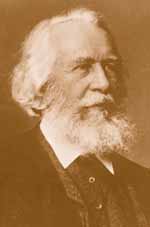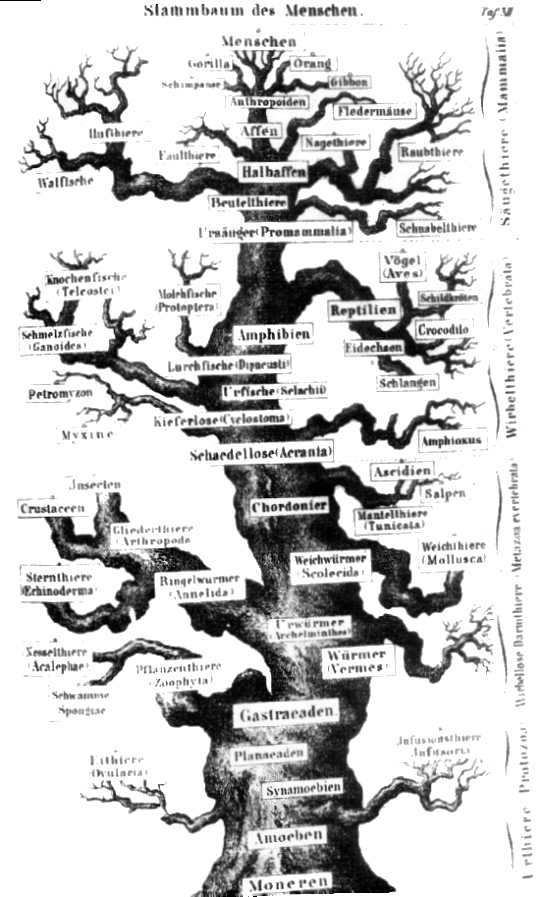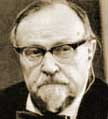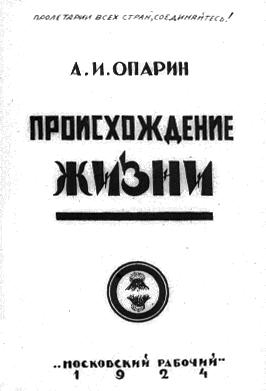|
|
|
Virtual
library on the origin of life
|
|
This is the cover of the first
English edition (1938) of the pioneering work of the biochemist Aleksandr Ivanovich Oparin (1894-1981),
published in Russian in 1936. Oparin elaborated, within the
framework of the darwinism, the first succesful scientific approach to the problem of the origin of
life, therefore surpassing the old spontaneous generation
controversy. |
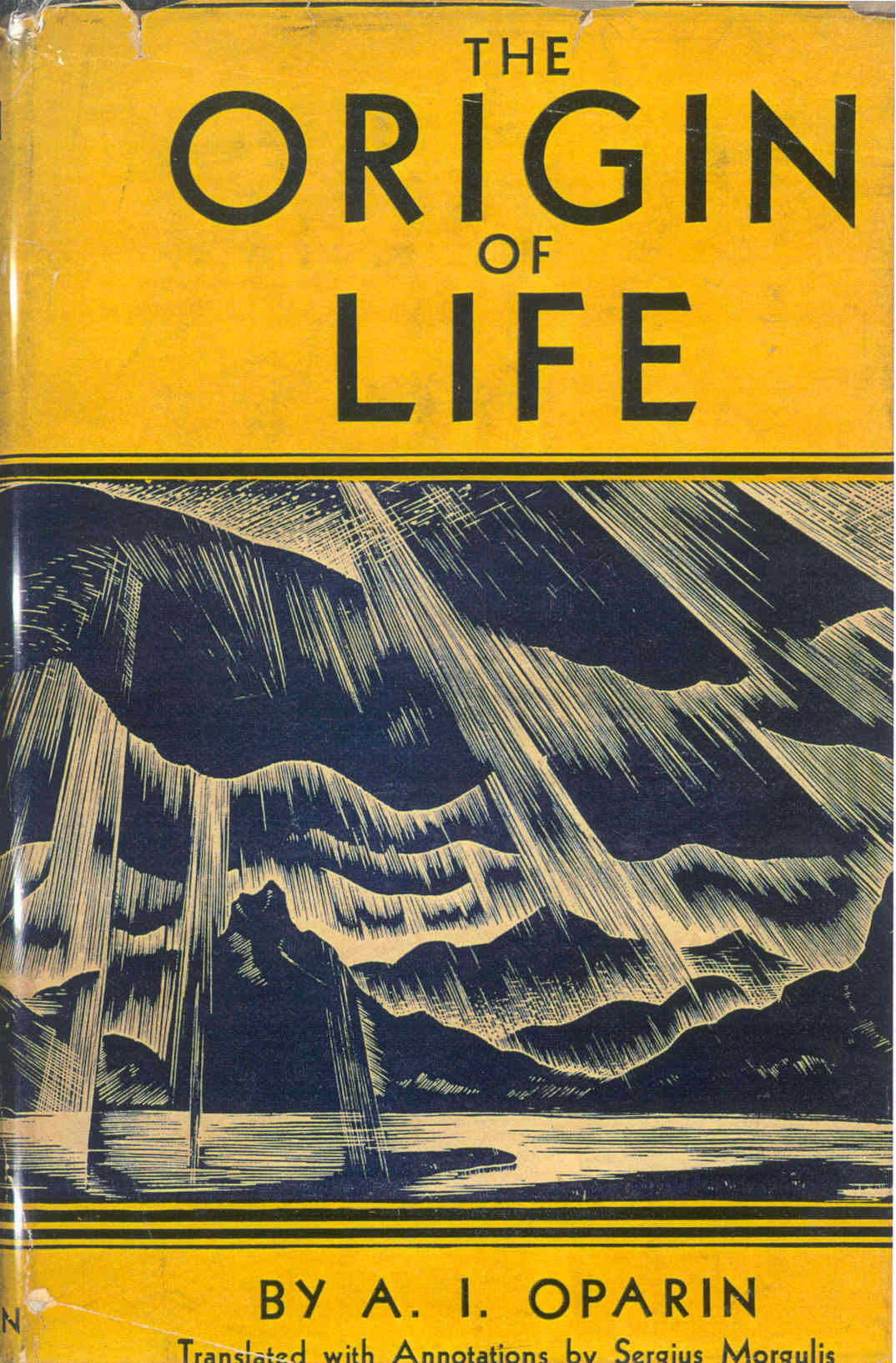
|
|
|
Virtual
library on evolution
|
|
Links
|
|
Papers
|
|
Oaxaca ISSOL'02
|
|
Charles Darwin
(1859)
On the Origin of Species London: John Murray p.
490 In brackets are the words added since the second edition on.
|
|

|
|
There is grandeur in this view of life with its several powers, having been originally breathed (by the Creator) into a
few forms or into one; and that,whilst this planet has gone cycling on according to the fixed law of gravity, from so simple a beginning endless forms most beautiful and most wonderful have
been, and are being, evolved. |
|
|
|
Ernst Haeckel
(1862)
Die
Radiolarien quoted by: B÷lsche, W. (1909) Haekel. His Life and
Work London:
Watts & Co. p.
57
|
|
|
|
The chief defect of Darwinian theory is that it throws no light on the origin of the
primitive organism -probably a simple cell- from which all the others have descended. When Darwin assumes a special creative act for this first species, he is not consistent, and, I think, not
quite sincere. |
|
|
|
J.B.S. Haldane
(1929)
"The
origin of life". The
Rationalist Annual. Reprinted
in: Bernal,
J.D., The
Origin of Life The Weidenfeld and Nicolson Natural History R.
Carrington, ed. London: Readers Union, 1967 p.
242-249
|
|
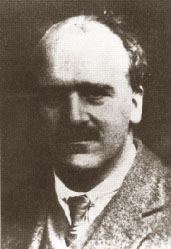
|
|
Just as we Know of sight only in connection with a particular kind of material system called the eye, so we know only of
life in connection with certain arrangements of matter, of which the biochemist can give a good, but far from complete, account. The question at issue is: "How did the first such system
on this planet originate?" This is a historical problem to which I have given a very tentative answer on the note unreasonable hypothesis that a thousand million years ago matter obeyed
the same laws that it does today. |
|
|
|
Aleksandr. I Oparin
(1924)
Proiskhodenie
Zhini. Mockba:
Moscovksii Rabotchii. English translation in:
Bernal,
J.D., The
Origin of Life The Weidenfeld and Nicolson Natural History R.
Carrington, ed. London: Readers Union, 1967 p.
199-234
|
|
|
|
What we do not know today we shall know tomorrow. A whole army of biologists in studying the structure and organization of
living matter, while a no less number of physicists and chemists are daily revealing to us new properties of dead things. Like two parties of workers boring from the two opposite ends of a
tunnel, they are working towards the same goal. The work has already gone a long way and very, very soon the last barriers between the living and the dead will crumble under the attack of
patient and powerful scientific thought. |
|
|
|
|
|
|
|
|
|
|
|


